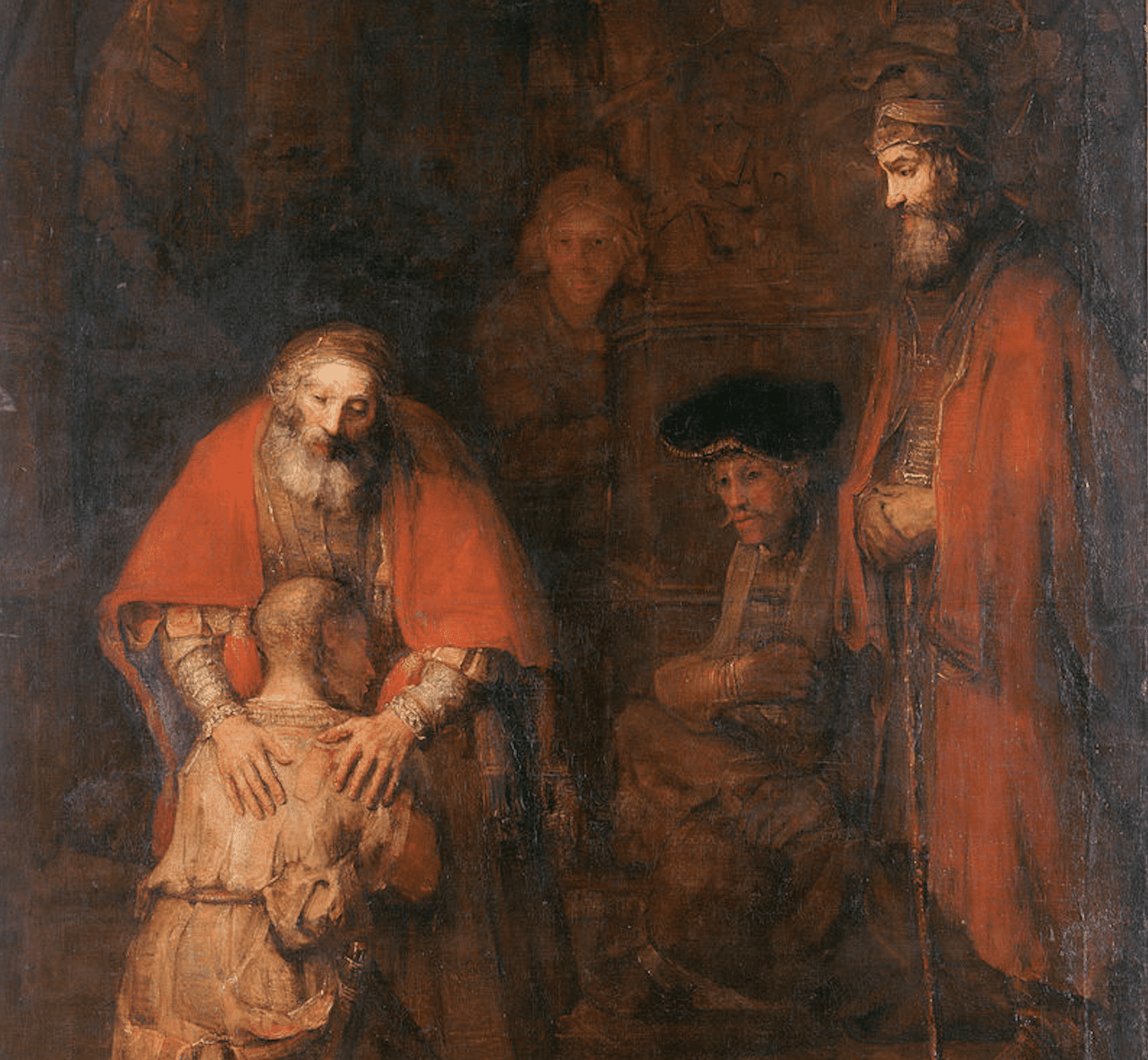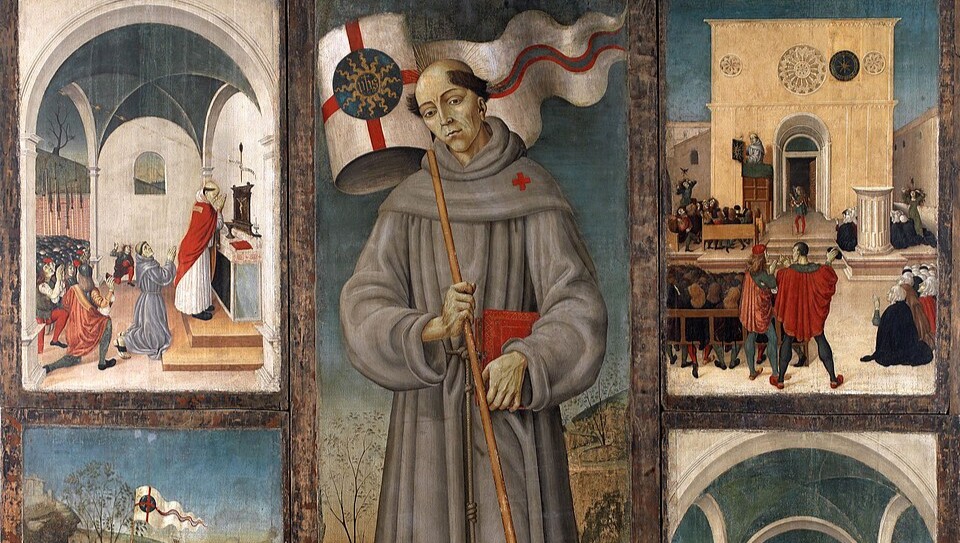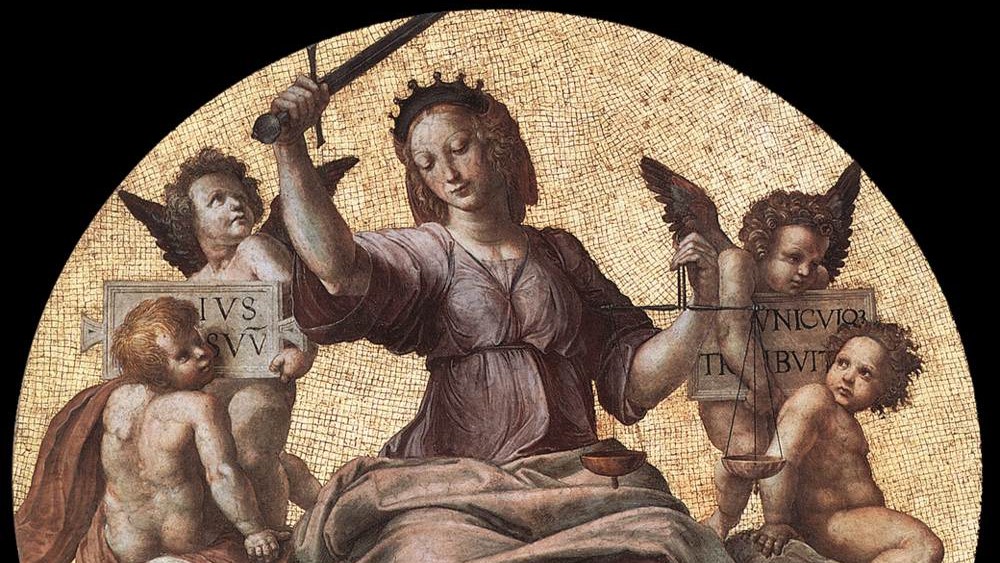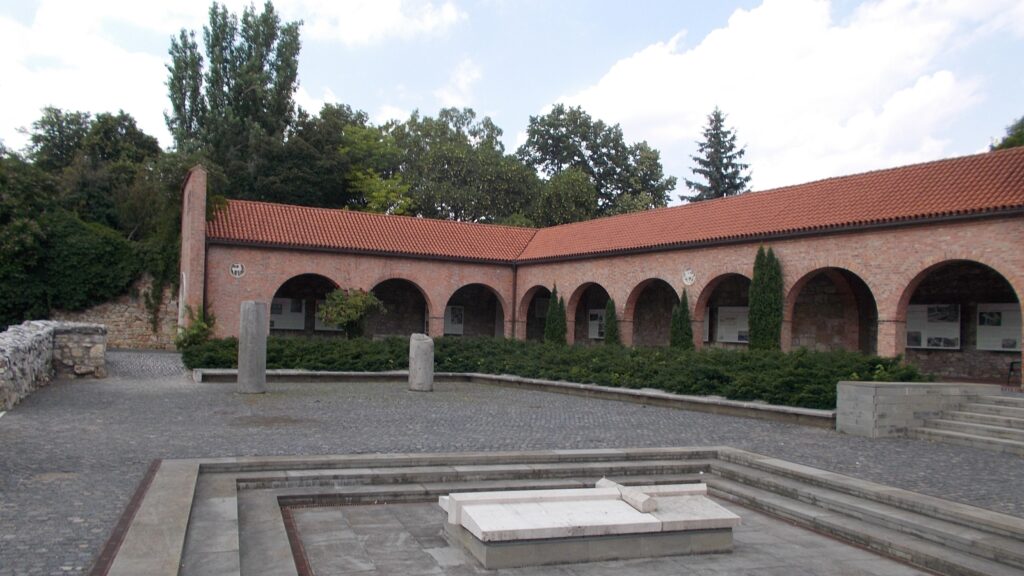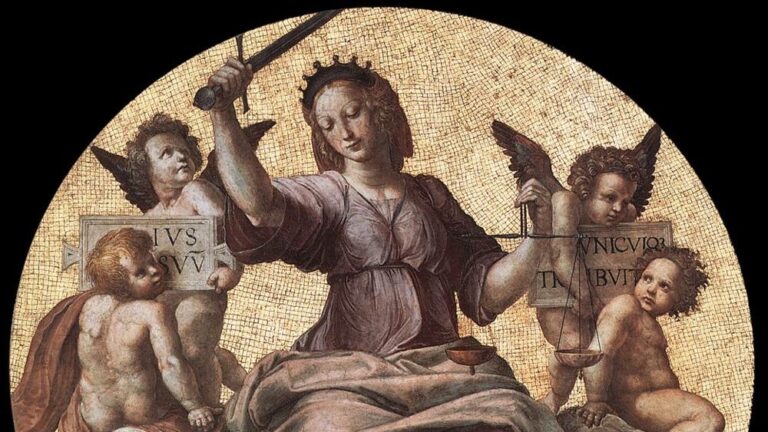The separation of state and church is currently a ubiquitous topic, triggering intense debates. Regardless of the facts that the term ‘separation’ is extremely vague, and that all countries are characterized by a certain degree of governmental interference with/in the religious sphere—see indicators such as GIR (Government Involvement in Religion) which show only differences in the extent of governmental interference1—the historical roots and justifications of ‘separation’ are also rather problematic. I shall comment on these first, before attempting to answer the question of whether the model of the ‘secular’ state—that is, a state devoid of any religious foundations, as presumed by the narrative of separation—exists at all, or is only a myth of the modern era.
It is an ineradicable platitude of history textbooks that the separation of state and church in Europe was made unavoidable by the Reformation and the ensuing interdenominational bickering, if not the ‘wars of religion’. As soon as it became clear that neither side was able to secure overall victory, that the earlier hegemony of Catholicism was impossible to restore, and that Protestant denominations were unable to completely replace Catholicism, states, so to speak, ‘had no other choice’ but to rise above religious divisions and place their political and social systems on new, secular foundations. Subsequent developments— the Enlightenment, the retreat of the Christian faith and the practice of religion, the emergence of non-Christian traditions in Europe, not to mention the appearance of atheism as an independent ideology— continued to strengthen this process, and made it impossible to return to earlier attempts at ensuring transcendental foundations for the state.2
This narrative is in itself completely coherent and convincing, but is rather difficult to corroborate historically. It is a fact that the Reformation created denominational pluralism which was impossible to manage at a European level, but nothing prevented individual states from trying to restore unity within their borders.
In fact, in France, the most frequently referenced example of the so-called ‘wars of religion’3, Catholicism not only remained the established state church, it actually increased its jurisdiction as the official state religion
The restricted toleration for Protestants (Huguenots) laid down in the Edict of Nantes (1598) did not mean religious neutrality, and by no means represented a separation of state and church. It did not even provide for the unrestricted toleration of Catholics: after a former Jesuit student’s attempt on the life of King Henry IV, the Society of Jesus was first driven out from several provinces of France, but then on the king’s order it was allowed to continue its operation, a measure which only served as a means of reinforcing the state’s control over the church, as well as provincial parliaments.4 In 1610, when a similar attack resulted in the king’s death, the Society of Jesus was only able to protect itself by unambiguously expressing its loyalty to the state and distancing itself from the views of certain theologians in its ranks who had been held in very high esteem in the universal church.5
Subsequently, the tendency towards a state religion became increasingly pronounced: in 1682, the Gallican Articles were promulgated, openly denying that the Pope had dominion over things temporal, giving the right to appoint bishops to the king, and making the validity of the Pope’s utterances subject to approval by the church as a whole, even concerning questions of doctrine. Then in 1685, King Louis XIV—and not the French Catholic Church already under the strict supervision of the state—initiated the revocation of the Edict of Nantes, that is, putting a ban on the Protestants’ free practice of religion. If one believes that a hundred years later the French Revolution abolished state control over religion and implemented the separation of state and church, one should note that what happened was just the opposite. It was the state which took control of church assets, the state which banned monastic orders, and the state which made it mandatory for priests to take an oath on the Civil Constitution. It is true that the privileged position of the Catholic Church was eliminated, but in reality, there was no secularization of politics at all. The state imposed its own cults (the altars of the nation, the religious celebrations of republican virtues, the rites of the ‘Goddess of Reason’ and the ‘Supreme Being’) onto the majority of society.6
The Concordat of 1801 between Napoleon (or, rather, as he was then, First Consul Bonaparte) and Pope Pius VII did not change this hierarchy significantly, either: concessions made to the Catholic Church were almost completely withdrawn by Napoleon’s so-called ‘Organic Articles’, confirming the state’s supremacy over the church. Subsequent developments—the persecution of the Jesuits during the Bourbon restoration,7 anti-clerical measures introduced by various governments, culminating in the law of 1905 on the ‘Separation of churches and the state’—reiterated the same model, in which the state dictated to the church(es) what they were allowed and not allowed to do, although ‘separation’ would mean that the churches would not have a say in the operation of the state, nor the state in the operation of the churches. The concept of the modern state, however (which represents—not only in Max Weber’s view, but also according to all contemporary dictionary definitions—a kind of coercive monopoly over a territorial unit) a priori excludes such mutual independence.
If we need further examples in the modern era, we will also find them in England (where the Anglican Church has been a state institution governed by the king since Henry VIII) or in Scandinavia, where the Evangelical Church became the state church (and remained the state church until 2000 in Sweden, and until 2017 in Norway, and still is in Denmark and Iceland). Neither the Peace of Augsburg of 1555 nor the Peace of Westphalia of 1648 decreed that every man had the right to follow his own religion, but rather that every political power had the right to choose the religion of its subjects (Cuius regio, eius religio, that is, ‘whose realm, his religion’). Even writings promoting religious tolerance, ahead of their time in this respect, such as John Locke’s essay published in 1689 (A Letter Concerning Toleration) failed to include arguments for a total separation of state and church, and, instead, subordinated religious law to civilian law, or banned either Catholicism or atheism.8 The public practice of Catholicism was prohibited up to the middle of the nineteenth century even in such havens of tolerance as certain Dutch provinces, which can be ascertained by anyone who visits Amsterdam, where one of the formerly hidden ‘attic churches’ has been turned into a museum.9
If it did anything at all, it was to support centralization: the subordination of the church to the state, and the regulation of religious life by the state. As to the justification of this subordination as necessary to prevent ‘wars of religion’, I have covered this topic in a previous monograph.10 As a brief summary, the term ‘war of religion’ was unknown in the literature of the Reformation era: neither Protestant works (Theodore Beza’s Du droit des magistrats or Vindiciae contra tyrannos) nor Catholic authors (Jean Boucher of France, or Mariana and Suárez of Spain) spoke of any ‘armed proselytizing’, but referred to the medieval concept of the right to resist, to which all communities are entitled vis-à-vis an unjust and violent political government.
It would be a misunderstanding, then, to think that the Reformation led to a separation of state and church
Although ‘religious’ causes of wars and persecutions were increasingly cited in the seventeenth and eighteenth centuries—at the time, interestingly, when the number and intensity of such occurrences had already started to diminish—no one defined an autonomous concept of ‘war of religion’ as such. On the contrary, the already-quoted John Locke, for instance, expressly called the allegedly religious—but in reality, rather human—efforts to oppress others ‘pretence’, that is, not a real cause;11 and Voltaire’s Philosophical Dictionary also tended to expose religious violence as hypocrisy, inspiring ‘plots, sedition, robbery, ambushes, surprise attacks on towns, looting, and murder’, and not as holy wars.12
At the same time, it is of particular interest that Locke and Voltaire—decades after the French civil war or the Thirty Years’ War, which could hardly be regarded as exclusively religious in character13—still insisted on this ambiguous line of argumentation, incriminating institutional churches. Locke should in fact have known that the most extensive armed conflicts of his own time (e.g. the three Anglo-Dutch wars between 1652 and 1674) would hardly confirm a decisive role for religion, be it real or spurious, in triggering the violence, and Voltaire also forgot, apparently, that the eighteenth century was characterized to a much greater extent by wars of succession between enlightened European monarchs, and wars between nation states fought with geopolitical or commercial goals, than by any religious fanaticism. The exclusion of religion—or, more precisely, the exclusion of Christian churches—from political life in no way resulted in reduced levels of global violence; what happened, simply, was that certain modern, ‘secular’ forms of violence became more acceptable than the previous ‘religious’ ones.
This, however, already leads to the question of what we mean by the secularity of either violence or the state as the entity exercising the monopoly on violence. The claim that the emergence of the modern state is ‘a process of secularization’ frequently appears in the relevant literature,14 but it would be more correct to say that in this case we do not speak about independence ‘from religion’ in general, but merely about the break of modern European states from Christian churches.
Carl Schmitt already stated in 1922 that the modern theory of the state was based on ‘secularized theological concepts’, but the examples he referred to supported that it was rather a monopolization of the theological concepts of Western Christianity and its rivals (deism, pantheism, or atheism).15 The term ‘secularized’ is misleading, in that it suggests the emergence of something radically new in politics, whereas—as also implied by the concept of political theology—the state continued to be based on transcendent foundations, though in a way which was not obvious to everyone.
Eric Voegelin expressed quite similar views in 1938 when he claimed in his Political Religions that the distinction between the ‘secular’ and the ‘religious’ is a specifically Western invention which is much older than modernity:
‘When one speaks of religion, one thinks of the institution of the Church, and when one speaks of politics, one thinks of the state. These organizations confront one another as clear-cut, firm entities, and the spirit with which these two bodies are imbued is not one and the same. The state and secular spirit conquered their spheres of power in the fierce battle against the Holy Empire of the Middle Ages, and in the course of this struggle linguistic symbols developed, which do not reflect reality as such but seek to capture and defend the opposite positions of the struggle.’16
The break between the state and the Christian Church does indeed originate in the Middle Ages, but the reason why it did not mean ‘secularization’ was presented most convincingly so far by Ernst Kantorowicz in The King’s Two Bodies in 1957, still regarded as essential reading today.17 In fact, the separation of secular power and ecclesiastical power is generally traced back by the Christian tradition to Jesus Christ’s words about the coin used for paying the imperial tax (‘Render unto Caesar the things that are Caesar’s, and unto God the things that are God’s’, Matthew 22:21), a concept which was so unusual—not only in its own time, but also for a long time subsequently—that even medieval political theories were unable to fully tackle it. The sacred nature of kingship, the respect of kings as ‘gods on earth’, or the interpretation of the political community as a ‘mystical body’ did not disappear from early Christianity either; it was the papal will to secure an increasing exclusivity for itself which, from the eleventh century onwards, led the so-called ‘secular’ authorities to search for a different, but no less transcendent, foundation for themselves.
The means thereof included at first the religious respect for law and legality, the cult of the monarch as ‘animated law’ (lexanimata), and, subsequently, the consecration (sanctification) of the state itself, which expressed the unity of the ruler and the nation. In the early modern period, it was evident that this new political religion (or, from a Christian perspective, idolatry) scored a resounding victory. As the British historian John Bossy noted, the holy ‘migrated’ from the church to the state, and by the beginning of the sixteenth century, ‘it had become comparatively banal to speak of the king of France as a corporeal god’.18
One question which still remains is whether the state broke with this ‘holy’ foundation later, that is, after the Reformation, or whether the secularization of political and social life actually took place. As we have seen earlier, the absolutist states of the seventeenth and eighteenth centuries exercised greater control over the church, while trying to present this as an effort going beyond religious denominations, or, ‘religion’ as such. From which it does not at all follow that this was indeed what was taking place in reality. Being defined as a religion by the believers is not a precondition for something to be a ‘religion’.
One of the most influential discourses of political theory in the long nineteenth century (the period between the French Revolution and the First World War) discussed the emerging democratic ideology as a new religion
Alexis de Tocqueville’s Democracy in America used terms such as the ‘omnipotence’ of the majority and the ‘dogma’ of popular sovereignty; John Stuart Mill spoke about the ‘false creed of democratic equality’; Herbert Spencer referred to the superstition of the ‘divine right’ of parliaments; Gaetano Mosca wrote about the ‘religious founders’ of democracy and socialism; and Vilfredo Preto compared the rise of the ‘democratic religion’ to the spread of Christianity during its first few centuries.19 It should be made clear that the idea of democracy—at least the interpretation of majoritarian democracy criticized by the authors indicated above—was also a possible means of securing foundations for the state, and in this respect, it was not essentially different from the totalitarian ideologies of the twentieth century, which were subjected to criticism by the discourse of secular religions emerging from the 1930s.20 The fact that the conventional forms of totalitarianism were later forced to retreat significantly (although we should remind ourselves that they have not yet fully disappeared) does not make the question redundant: do today’s Western political systems—somewhat inaccurately called ‘liberal democracies’— continue to preserve similar theological presumptions or not?
Of course, the adjective ‘liberal’ a priori excludes this possibility. Whether understood as an ideology or as a kind of political system, liberalism’s respect for the freedom of the individual, the pluralism of worldviews, the separation of the branches of power, or the principle of the rule of law seems to stand in marked contrast to any ‘absolute’ approach. When the German constitutional lawyer Ernst-Wolfgang Böckenförde wrote his widely known thesis on the liberal secularized state which, on the one hand, guarantees the freedom of conscience and religion, but on the other hand is unable to maintain itself without the foundations inherited from tradition, his final analysis was that modern European thought precluded any return ‘across the threshold of 1789’.21 ‘Without destroying the state as the order of liberty’, he added, naturally, but the question arises as to whether this warning was more relevant already in the 1960s (or relevant in a different sense) than what Böckenförde himself presumed. The movement of 1968—in spite of postmodernist philosophy’s incessant references to infinite pluralism and small narratives—also built up, over subsequent decades, an ideological framework, which, in a similar manner to medieval Christianity, has become dominant in the Western world in an absolute and unquestionable manner.22 This, however, was not a kind of fatal derailment, but the manifestation of the simple fact that no society can exist without shared values and principles, or without dogmas which are not verified via debate but are believed in, regardless of the cost. A ‘secular state’, if we mean by this a state with a neutral worldview, based on purely rational foundations, has never existed, has never wanted to exist, and—to risk a forecast—will never come into existence. If one wants to fight, one will not have to fight against an ‘irreligious’ or ‘secular’ state, but—as Tocqueville pointed out—against a new religion:
‘All those who remain enamoured of the true grandeur of man must join forces and struggle against it.’23
NOTES
1 John Madeley, ‘Religion and the State’, in Routledge Handbook of Religion and Politics (London: Routledge, 2009), 174–191.
2 Bernard Lewis, Cultures in Conflict (Oxford: Oxford University Press, 1996), 17.
3 In WorldCat, for instance, 63 of the first 100 hits on ‘Wars of Religion’ are about the French wars of religion in the sixteenth century.
4 The Parliament of Paris and the thirteen provincial parliaments functioned as supreme courts of justice under the Ancien Régime. (The editors.)
5 Thomas Worcester, ‘Jesuit Dependence on the French Monarchy’, in The Cambridge Companion to the Jesuits (Cambridge: Cambridge University Press, 2008), 106–112.
6 Mona Ozouf, La Fête révolutionnaire (Paris: Gallimard, 1976).
7 Geoffrey Cubitt, The Jesuit Myth (Oxford: Oxford University Press, 1993), 55–104.
8 John Locke, Two Treatises of Government and A Letter Concerning Toleration (New Haven: Yale University Press, 2003), 245–246.
9 https://www.amsterdam.info/museums/museum_ lordattic/.
10 Tamás Nyirkos, ‘Vallásháború: egy kifejezés keletkezéstörténetéhez’ (War of Religion: Comments on the Genesis of the Term), in Vera Szántó, ed., A szabadság iskolája (The School of Freedom) (Budapest: L’Harmattan, 2014), 51–62.
11 John Locke, Two Treatises of Government, 216
12 Voltaire, Political Writings (Cambridge: Cambridge University Press, 1994), 9.
13 William T. Cavanaugh, The Myth of Religious Violence (Oxford: Oxford University Press, 2009).
14 Ernst-Wolfgang Böckenförde, ‘The Rise of the State as a Process of Secularization’, in Religion, Law, and Society: Selected Writings (Oxford: Oxford University Press, 2020), 152–167.
15 Carl Schmitt, Political Theology (Cambridge, MA: The MIT Press, 1985), 36–37, and 50–51.
16 The Collected Works of Eric Voegelin, Volume 5 (Columbia: University of Missouri Press, 2000), 27.
17 Ernst Kantorowicz, The King’s Two Bodies (Princeton: Princeton University Press, 1957).
18 John Bossy, Christianity in the West 1400–1700 (Oxford: Oxford University Press, 1987), 155.
19 For a more extensive analysis, see Tamás Nyirkos, Politikai teológiák: a demokráciától az ökológiáig (Political Theologies: From Democracy to Ecology) (Budapest: Typotex, 2018), 45–68.
20 A more detailed analysis of this can be found
in Emilio Gentile’s works, e.g. Politics as Religion (Princeton: Princeton University Press, 2006).
21 Ernst-Wolfgang Böckenförde, ‘The Rise of the State’, 167.
22 The theological description of ‘woke’ ideology, Black Lives Matter, gender theory and such can be regarded as a commonplace today; see for instance https:// www.spiked-online.com/2020/12/26/the-year-the- ruling-class-got-woke/, or https://www.tabletmag.com/ sections/arts-letters/articles/postcolonial-western- guilt-pascal-bruckner.
23 Alexis de Tocqueville, Democracy in America (Indianapolis: Liberty Fund, 2010), 758.

